Florida Sea Turtle Owes Its Health to Denture Glue
A turtle rehab center in Florida turned to an unlikely substance to repair a sea turtle's fractured shell: denture glue.
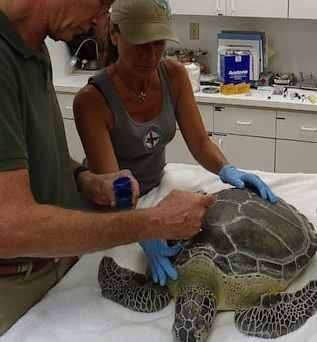
A turtle rehab center in Florida turned to an unlikely substance to repair a sea turtle's fractured shell: denture glue.
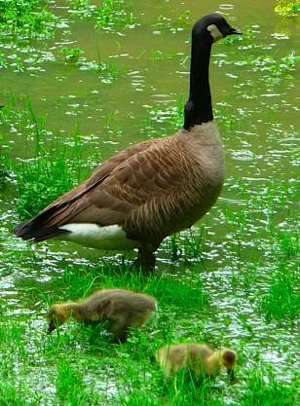
A deer that stood guard over the eggs of an expectant goose for weeks at a Buffalo cemetery is now admiring the hatched goslings.
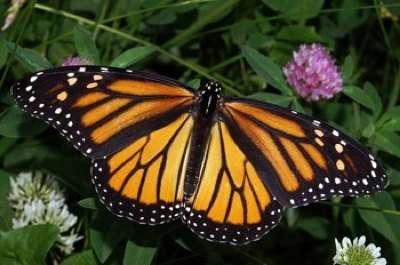
Good news for the Monarch butterflies and their wintering grounds in central Mexico: The clearing of forests used by the butterflies has dropped to just over one acre's worth of trees, compared to the hundreds of acres lost annually in the past.
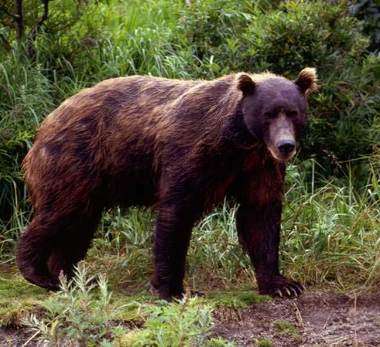
Some of Europe's key animals have made a comeback over the past 50 years, a report suggests. Conservationists say species such as bears, wolves, lynx, eagles and vultures have increased in numbers.
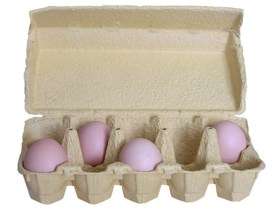
They were once adversaries. These days, though, the president of the Humane Society and the president of the United Egg Producers, are allies, walking shoulder to shoulder into offices on Capitol Hill, asking Congress to approve new rules for egg farmers.
Before you kick your dying Christmas tree to the curb, consider this: Members of the conservation group Trout Unlimited would love to turn that tree into fish habitat. On three Saturdays in January, the Tualatin Valley chapter of Trout Unlimited will be collecting Christmas tree donations at two locations in the Portland metropolitan area. Later, they'll place the trees into a side channel of the Necanicum River near Seaside, where they will provide predator protection and food sources for baby coho salmon.
Half Moon Reef was once a massive underwater oyster colony in the most productive fishery in Texas, rich with shellfish, blue crabs and shrimp. Today there is barely an oyster left in the 450-acre site. But conservationists are now rebuilding the reef in the heart of Matagorda Bay using huge boulders of Missouri limestone carried down the Mississippi River on 36 barges, building the foundation for revitalizing an entire ecosystem.
Scientists have discovered a new species of shark in the ocean off South Carolina and have named it for the region where it was found.
Federal maritime officials have approved a plan to protect whales in and around San Francisco Bay. Shipping industry representatives joined with whale researchers to establish new cargo lanes that will protect blue whales, the largest marine mammal, in their feeding grounds outside one of the busiest ports in the world.
Pushed by a chorus of 486,900 citizens, the Australian government announced Thursday their intention to create the world's largest marine reserve, a highly protected zone in the Coral Sea stretching almost 200,000 square miles -- a historic moment for ocean conservation in Australia and globally. Australia's Coral Sea, east of the Great Barrier Reef, is one of the last remaining intact tropical ocean ecosystems in the world where populations of large ocean predators - sharks, tunas, and marlin - have not been severely reduced. The waters are home to healthy coral reefs, atolls, cays, and islands that provide shelter to reef fish, sea turtles, and seabirds.
Countries fishing the Eastern Pacific Ocean for bluefin tuna have heeded scientific advice agreeing to almost halve their fishing quotas for the prized but beleaguered fish.
Google Founder Eric Schmidt and his wife, who have already invested both time and money in ocean health issues, presented a $10 million gift to the Monterey Bay Aquarium to support their Seafood Watch program that pushes for globally sustainable seafood.
When a volunteer first saw the flame-scarred nest west of Utah Lake he thought there was no way the eaglet could have survived. Mr. Keller climbed through the scorched landscape on June 28 to document the loss of the nest and unfledged baby. While standing there, taking in the devastation, Keller noticed a set of eagle legs behind a burned tree at the base of the cliff.
Harbor porpoises, which had been eliminated for many decades from portions of Puget Sound, are making a big comeback.
A tiny minnow that lives only in Oregon backwaters is set to become the first fish ever taken off U.S. Endangered Species Act protection because it is no longer threatened with extinction.
An annual report on bird populations in the United States released Tuesday offers hope and good news for a variety of birds in key habitats, including waterfowl, Eastern song birds, wetland species and shore birds.
A rare monkey not seen for nearly half a century and thought to be extinct has been spotted by two primatologists working in a Congo forest. Their expedition yielded the first-ever photograph of the elusive Bouvier's red colobus monkey.
Over a decade ago when conservationists in Zambia figured out the connection between poverty and poaching, when they learned the reason poachers hunted game was to feed their family, a great program called COMACO was hatched. By educating women and poachers in farming, bee-keeping, carpentry, and metal working, they were improving villagers lives and poaching of lions, elephants and other large species began to plummet.
Burger King's baby steps toward more humane treatment for animals in its supply chain took a whopper of a leap forward today when the fast food chain announced that all of its eggs and pork will soon originate from non-caged sources.
The Switzer Ranch, owned and operated since 1904, could not support future generations on the land, so the family had to get creative. Through ecotourism operations and an annual Prairie Chicken Festival, the ranchers realized the immense importance of acting to conserve the Sandhills of Nebraska and their native life.
Recent Stories
A Heartfelt Reminder to Appreciate the Ones We Love
Cherish the Woman Who Stands by You
Breaking Generational Cycles of Pain
Living by Your Own Values, Not Others' Approval
When Life Brings Rain, It’s Okay to Rest
Before You Judge Someone's Life, Take a Moment to Walk in Their Shoes.
A Friend Who Spreads Gossip is Not a True Friend at All
The Value of Human Connection Over Digital Convenience
The Quiet Kind of Love
One Day, Your Mom Won’t Call You Anymore
I’ve reached a point in my life...
Happiness is a mindset, a conscious choice we make every day